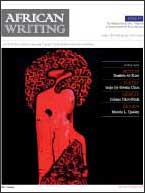The Teacher
Beware of false prophets, which come to you in sheep’s clothing,
but inwardly they are ravening wolves. Matthew 7:15
To plant the seeds of Truth, the Sufi teacher launched a campaign against the astrologers, soothsayers and followers of the animist rites.
He arrived from Merzuq with a caravan headed toward his home in Touat. He said he belonged to the Qadiri Brotherhood and that his goal was to guide the people to the path of Freedom. When describing himself, he never failed to stress his dissent from the clerics of orthodoxy. As he told the tribe’s chief, Ádda, who had hosted him, ‘I am not playing up my dispute with other clerics in order to insinuate myself with you or to prove my sincerity. I know how much the desert tribes have suffered from them and from the thievery they perform in the name of religion. I reject their school and their methods. First they wrench faith from the language of living revelation. Then they replace divine inspiration with dead letters and dogma. They conjure Satan from his confines in the souls of men and then leave the idiots to give him chase, as if they could actually kill him in this world! And so, Satan comes to rule over men and they lose the most precious gem God ever gives to His creations, the thing he places at the heart of every religion—Freedom. Revelation is turned on its head by such error—it makes Satan men’s Lord and their Guide through life. Here is the source for the brash corruption of men. And the faith returns to being as foreign and strange as it ever was in the past.’
The chief rejoiced to hear such talk. To honor his guest, he slaughtered sheep and gathered round all the tribe’s other chieftains and notables for three days straight. In the evenings, young girls serenaded the men with song and innocent entertainment. On the fourth day, the chief consulted with the notables of the various clans. Then, on behalf of all, he asked the teacher to stay on with them. They wanted the teacher to reveal to them the secrets of the faith. They wanted him to teach their sons to recite the Qur’an. The teacher asked to think it over, then took his leave. He would return to Touat to tie up his worldly affairs and then, in a few months, be back back to take up permanent residence. After giving him fine camels loaded with water and provisions, and giving him slaves to command, the nobles of the tribe escorted him for the first leg of his travel. But no sooner had he gone halfway home, he returned to the tribe. By way of explaining his sudden decision to come back, he said that matters of this world did not merit the hardship of the journey. He said that if one wanted to convince others of a new path, he would need to first save himself from himself.
The teacher decided to cultivate disciples, so he taught the children the Qur’an and insisted they receive their teachings in a pure form, with nothing to mediate between them and their faith. Because the people of the desert are ignorant about the controversies among the schools of Islam, they did not understand his dispute with the other orthodox teachers. They even continued to call him by the same name they had called the others before him— fagih, teacher. Then he decided they would take a step forward. From his students, he formed bands to fight the pagan heresies and cults. Around the neck of each disciple, he hung an amulet and commanded them to stone Timit, the soothsayer. He erected a tent on the hill overlooking the well, and made it a place for group prayer, Qur’anic recitation and meetings. Often from this place would pour forth the din of hand drums and voices murmuring Sufi prayers. From his godly hermitage the teacher began to invent techniques for guiding people to the path of Salvation and Freedom. He began by eliminating the soothsaying priesthood. He forced them to quit reading into the unknown and to stop writing their unholy talismans.
Afterwards, his disciples went down into the village to implement the second step of their mission. Beforehand, the teacher had called together the notables in the tent of the chief. Here he told them this: if they wished to gain paradise, they would have to begin with themselves. The men were mystified and exchanged confused looks. The Sufi master then delivered his demand, ‘The time has come for you to stop raiding the jungles and the river of the south.’
Their astonishment grew, and the chief spoke up, ‘What do you expect us to do without captives and slaves?’
‘He who would possess is possessed. He who would own others is himself owned. And a slave has no right to aspire to the blessings of freedom.’
‘But in our raids, we don’t only hunt captives and slaves. We also spread the message of Islam.’
‘Does one spread the message of Islam by hunting men—who should be slaves to God alone—in order to turn them into slaves of men instead?’
Silence reigned. Then the master went even further in his attack, ‘But this in itself is not enough.’
They turned toward him in loathing, but he paid them no mind. ‘You must free each slave girl you have captured and each slave whose life you have snatched away.’
They held their tongues for a long while. Again, it was the chief who spoke. ‘The past is past, let it be buried. May God forgive deeds long done!’
‘On the contrary, every deed has been written on the eternal tablet of judgment.’
‘But most of these notables have taken slave girls as lovers. Others have taken some as legitimate wives according to the law of God and His Prophet!’
‘The taking of concubines is expressly forbidden. And to take wives at sword point is rape.’
A long anxious silence prevailed. Once more the chief interjected. ‘Are you asking us to divorce them?’
‘The beneficence of a pious man is what spurs him to take the right action.’
‘But divorce is loathsome.’
‘It is loathsome only when both parties consented to the union in the first place.’
‘And what if our slaves reject your freedom and ask to remain in the protection of their masters? What should we do? Are we to drive them away?’
‘Of course. You must kick them out of your homes. Everyone who is in flight from freedom prefers to hide in slavery, for Salvation is a heavy burden. We must begin with the slaves if we want to undo the slavery that lies within ourselves.’
‘Your teachings are severe.’
‘All divinely-inspired teachings are severe. He who has not been born twice will never taste blessing.’
As the wise chief expected, freeing the slaves was not easy. They chose to reject freedom and gathered in the plain instead. The divorced Black women joined in, dragging along their half-breed children. In a mob, they headed toward the prayer tent. There they protested, hurling curses and stones. The disciples responded in kind, fighting with clubs, sticks and fists. The clash resulted in injuries and one death, a fact that delighted those notables who were enemies of the Sufi brotherhood. However the teacher confronted them with two spells that have proved successful in all times and places—patience and trickery.
The next morning, as they gathered in front of the tent, the master walked out and addressed them. ‘Know that there is nothing more difficult than to command yourself. Don’t forget, however, that recompense follows from giving. We have examples of this in the companions of the Prophet. They asked for death, but it was written that they would have life instead. If you are not born today, you cannot be born tomorrow.’
More than one voice interrupted him, ‘We don’t want to be born tomorrow. Leave us to our own day and get lost.’
Patiently, he continued, ‘We were created free…’
‘We don’t want freedom,’ They shouted. ‘Get out of here, we want to live under the merciful care of our masters.’
‘Your true master is God. Heaven lies at the feet of freedom.’
‘We don’t want your heaven. Leave us alone!’
‘You speak thus because you have not tasted freedom. Give me a week and you will see for yourselves how you are reborn.’
Silence spread for some moments. It would have continued had not a defiant woman held a crying child to his face and screamed, ‘You’ve orphaned our children and deprived them of their fathers’ tenderness!’
Another followed, ‘We want to return to our husbands.’
The master stood there silently as he listened to the sobs and curses. He knew well the harshness of what he faced. But this was a journey in which he would not turn back halfway through. He saw the soothsayer among the women and heard a voice that rattled him, ‘We want to go back to the men we love. We don’t want to go bound in chains to your heaven.’
He wiped his face with both hands and murmured in despair, ‘God forbid. Do you not fear your
God? There is no salvation but in God!’
He would have succumbed to defeat had not the wives of the notables rushed to save him.
2
The history of the noblewomen’s suffering can be traced back to a raid the chief once led on the jungles to the south. The noblewomen often dated the beginning of their defeat with that sad day when the raiders’ messenger arrived, mounted on a fine piebald camel so emaciated from travel it looked like a slender gazelle. The messenger had come to fetch a camel loaded with water skins he would take back to greet the warriors who were only a day’s distance from the encampment. From previous experience the noblewomen knew that when the warriors returned from their raids against other tribes, they would send a messenger who would inform them of their approach, and give them the opportunity to prepare a proper homecoming for the victors. The women would hasten to dye their hands and feet with henna, bathe and scent their bodies with incense and wild flowers, and sweeten themselves with the attar tadit they borrowed from one another. The perfume bottle, hidden especially for such occasions, would be passed around from each married woman to the next.
On that day, the tribe’s women performed these familiar rituals. Each donned her finest clothing, wearing the bright white rafighet under the indigo tari robe and purple tamberhamet cloak. Silver rings shone brightly on henna-tinged fingers. Heavy rings dangled from ears and bracelets wrapped around wrists. On that day, colored pearl necklaces hung around every neck. No gold jewelry was worn, on account of the evil that devilish metal brings. The women gathered the drums, and prepared their tongues for ululating and their throats for singing songs of sweet sorrow. The company of women departed early the next morning. Their bright procession moved over barren hills, through valleys of acacia, and towards the south where the Acacus Mountains vie with one another to touch the firmament.
They were shocked when they saw just how much war plunder had been taken. Alongside the herds of camels, cattle and sheep walked another herd—a long line of black men and women. Lower caste men drove them onward as if they were nothing but another kind of livestock.
The noblewomen’s songs of desire and longing died on their lips, and the wickedness of jealousy awoke. For women, even a man’s shadow seems like a second wife vying for his affection. Thus it was not hard for the tribe’s noblewomen to recognize the significance of the elegant Ethiopians they saw. These were the women of legends, a danger to men whose souls were weak. From experience, the wives knew that to their men, the Ethiopian women would appear like thin acacias in the light of the moon, or like slim houris from the harems of Paradise.
The spoils were divided though the men quarreled long over the slave girls. The chief interceded and distributed the shares according to his wisdom, saying, ‘Equity decrees that we will divide by lottery. This is the law. We have never heard of anyone in the desert being wronged by a lottery.’
Ruffled turbans nodded in agreement and hands relaxed their grips on the hilts of swords. The chief continued, ‘Each slave girl is worth three male slaves. Does anyone disagree?’
Thus ended the division of the spoils and thus began the troubles of the noblewomen.
Three days after their return, the chief called one of the itinerant Muslim teachers to marry him to a feisty Ethiopian slave girl. In that marriage the men saw an opening for a general competition. They raced one another to insert themselves into relations with their captives, all according to the law of God and His Prophet. They did this even as their wives and children watched and listened.
In this way misery made its path into the souls of the once happy noblewomen.
3
No sooner had the noblewomen heard the teacher’s call to free souls and slaves than they praised God’s greatness and asked him to lend support to this messiah. They had waited so long for someone to come and return their men to reason and the path of righteousness. They had waited so long for someone to free them from the tyranny of the black co-wives.
A number of them paid a visit to the prayer tent. One said, ‘I used to imagine I was a free and noble woman. Never did I suppose that one day a black slave girl would come and lord over me!’
Her companion added, ‘We thought we were the mistresses of the houses, but we’re now as low as slaves!’
The teacher offered comfort to their souls, ‘God forgive us, for we are nothing but the slaves of the One, the Sole God!’
A young beautiful woman, who was only recently married, complained, ‘Everyone but us. We are the slaves of slaves!’
‘God forbid!’
The first woman continued to agitate, ‘Does it make you happy to hear this? A free woman becoming the slave of a slave?!’
‘Never! God forbid! Freedom is my religion. But it is very difficult for a person to free himself.’
‘We will stand with you. We will place all our possessions under your command. What you ask for, we will give. Improve our lives, and forbid them from marrying slave girls from the jungles. Master, we fear our noble blood will dissolve in all this black blood!’
‘I have already given my word about this matter, and I have done so publicly.’
‘May God strengthen your faith, Teacher!’
The secret delegation struck up a rousing song, ‘O Master, O Teacher—May God brace your faith! God save us and save you from the enemies we face!’
Then they spread their hands in front of their faces to recite the Fatiha.
This is what people say took place in that private meeting. No one knows if there weren’t other secret provisos in the covenant as well, or if the story that went around the village was merely one of the fables people like to tell and retell.
What is known for certain is that the next day gifts began to rain down on the prayer tent. Bracelets and earrings and silver arrived. Attendants and disciples brought food and supplies. Stacks of bags of wheat, barley, sugar cane, corn and dates. Young women approached bearing bowls of couscous on their heads. Until this day, no one knows what kind of spell the noblewomen used to compel the army of slaves to obey the teacher and accept their manumission. There was a consensus, however, that it was unlikely the soothsayer played any role in the enchantment. The enmity between her and the teacher was well known to all.
In the clearing that stretches out behind the well, the master erected a new encampment for his followers. A few days later, he surprised the village by reciting the Fatiha and celebrating the marriages of fourteen young disciples to the newly divorced black slaves. He kept performing marriages until most of his followers had acquired the most beautiful of the slaves and all that remained was a handful of old maids. These women performed services for the prayer house and pleaded with the teacher to take them on as his personal attendants. A storm of rumors went around to the effect that they were the teacher’s concubines. This nasty rumor awoke the jealousy of the nobles and the ex-husbands who asked the chief to permit them to settle the issue with swords. The wise man shamed them with the soothing expression, ‘He who accepts the rules at the beginning of the game accepts the results at the end.’
But the surprises did not end here. No sooner had the tribe awoke than the notables faced what they considered to be the harshest blow of them all.
4
They realized immediately that it was intended to strike at their pride. When the teacher called the notables to the house of prayer in its new spot in the middle of his supporters’ camp, he sat them on the ground outside the tent. No one dared protest, perhaps because they knew that the merest word might stir him to push them down yet another rung on their ladder of decline. According to the lexicon of noblemen, an insult is not an insult to you if you do not pay it notice. Doing so only draws the attention of others to the fact. So they kept quiet about their shame. The chief sat silently in the open air next to the tent peg. No one failed to notice his smile. It never left his lips the entire time they were there.
Adding further insult, the master said, ‘Do not imagine I mistreat you because I am ignorant of the etiquette of hospitality. I sat you outside the tent so you would taste the best kind of treatment your slaves used to receive from you.’
Now the open gesture toward their humiliation confirmed it and their disgrace would follow them forever. The chief tried to salvage the situation with his usual level-headedness. ‘Until now no humiliation has ever attached itself to us. Sitting in the open among our attendants and slaves has always been one of our customs. Esteemed teacher, we are prepared to pay any price to save our souls and learn the foundations of the faith.’
The master intoned, ‘Well done! Well done! The rest of you should heed your wise chief and imitate his manners! He who believes in truth and salvation must first shed his pride and arrogance. Greatness belongs only to God in the heavens. Setting oneself above slaves is a practice only Satan can teach. He who has in his heart a speck of pride and vanity will never taste salvation.’
He stopped speaking and the notables exchanged looks. After a brief moment, he continued, ‘We’ll have something to say about your ruffled turbans and peacock garments in the near future. But today I have called you together for something more important.’
An Ethiopian servant girl brought him a goblet of milk. He drank two gulps and wiped his lips on the sleeve of his slender companion. ‘You have purified your homes of what is forbidden. Now you must purify your wealth by giving alms.’
The silence was charged with frayed nerves. A Fulati girl came and served tea. No one could take even a sip. They planted the cups in front of them in the dirt and, heads bowed, stared at the bubbles of froth.
In the end, it was the chief who dared to intervene, ‘The truth is we’ve never hesitated to perform our obligations. We give alms at every holiday.’
The master spoke as if he had expected this answer, ‘Giving alms on holidays is one thing, but giving alms to cleanse your wealth of sin is another. To give up money is the sacrifice most feared by those who seek to save their souls from the Devil. Yet I do not think there is a single wealthy man among you who will be stingy when it comes to God’s path.’
His hand reached inside his pocket. Pulling out a sheet of paper, he read details from the outrageous edict he had just fashioned. He would establish a treasury, organize taxes on incomes and livestock, and impose new tributes on the trade caravans.
5
The nobles feared for the tribe’s future. The new law alarmed them. They knew that the implementation of this law was an aggression against the authority of their chief, but it was he who told them in the meeting tent, ‘Only a madman would stand in the path of this torrent.’
Most suffered the blow patiently. Some spoke at length about how people would have to sacrifice their worldly possessions if they sought salvation and heaven. Some were not at all stunned by the catastrophe unfolding before their very eyes. ‘We gave him our sons so that he would teach them the Qur’an and the foundations of the faith,’ one man said with a note of contempt. ‘And he turned them into nothing but attendants and disciples.’
‘He turned them into an army of supporters who would wage war on us!’ said another.
Another added, ‘He incited our slaves against us. He coerced us into divorcing wives we’d won at sword point, even though our tradition says, ‘What you possess comes to you by your faith.’ And he claims to be working to spread the Prophet’s faith!’
The chief smiled as another man complained, ‘But that wasn’t enough, was it? He had to steal our wives too, didn’t he?!’
Emboldened, hotter heads exclaimed, ‘Nothing but the sword will stop this imposter. Nothing but blood will wash away our shame!’
One of the notable chieftains spoke and goaded them on, ‘And don’t forget that now he intends to steal our money!’
A heavy silence descended on the men. Then a lavishly turbaned youth exploded, ‘And now he wants to take the veils from our heads on the pretense of combating arrogance and pride? I’d rather die than walk through the village bare-headed. We’re not slaves from the jungle!’
A forthright man finished his thought, ‘In truth, there is little left to suggest we are still men at all.’
Then he turned toward the chief, ‘Honorable leader, how is it that you want us to keep quiet about this? We are lower than the most servile of slaves!’
Ádda answered calmly while kneeling on the designs his fingers had traced in the dirt, ‘Did you really hope to gain paradise without paying a price?’
One of the firebrands yelled, ‘We don’t want any paradise whose price is ruin! It is nobler to die!’
Anger-choked voices incanted, ‘Our honor is lost. Our death would be nobler.’
During these tense moments a man who’d been sitting quietly in the corner the whole meeting got up. He approached the chief and offered to reveal a secret, ‘A few days ago I met a teacher in the Tassili pastures. Do you know what he said about the religion of our teacher?’
He stared long and hard at the notables and then whispered, ‘He said that our teacher is an animist.’
The leader exclaimed in astonishment, ‘He adheres to pagan heresies?’
The other notables were too shocked to comment.
6
The chief found himself alone, isolated, useless. He asked the teacher for permission to travel north to the rocky deserts of the Hamada. As for the teacher, he had come to dominate the caravan routes and doubled the tributes charged to merchants. He’d waged war on the other tribes and raided the jungles to the south, capturing slave girls, men and livestock. But he committed a mistake, though one whose contours were not initially recognizable.
It was said that he received the gift from merchants in one of the caravans traveling from Timbuktu. It was a small box filled with gold dust. Until this day no one knows how the wise teacher was so ignorant of the properties of that devilish metal. Some of the more wicked minds in the tribe told a story that it was the soothsayer who arranged the trap. They said the merchant was merely the instrument by which the magic spell was delivered into the hands of the soothsayer’s old nemesis. People would not have imbued the mysterious box with such a ominous aura had the teacher himself not treated his gift like such a talisman. The teacher carried it around with him wherever he went and placed it under his pillow whenever he slept. His attendants and disciples saw him hiding the box beneath his legs whenever he sat for ceremonies in the prayer tent. The teacher was in the habit of cursing money and the worship of wealth. In fact, his students related multiple reports of him describing the yellow metal as the source of all misery both in this world and the next. For these reasons, his newfound love of treasure was the source of confusion and anxiety among his followers. The matter of the box perplexed his disciples and they began to say that besides the sinister dust, it concealed something else.
That is, they said so until the day they went to Timenkalin. That was the day that unknown forces attacked the fabled dominion of the teacher and felled it in a single blow. Those who managed to cling to their lives after that fantastical battle lost their minds or memories or went mute ever after.
Before that day, they had made elaborate preparations for a raid. The master claimed this raid would change forever the history of the desert. As usual when implementing his most critical decisions, he was secretive about the details. His enemies considered his policy of absolute discretion to be the secret of his success. Even during that raid, which divine powers decreed would not take place, his fighters thought that they would be heading South toward the jungles. But the teacher surprised them at the last moment with his plan.
The order was given to turn back toward the northwest, toward that lost, haunted mountain —Ideman. The army split into two parties. Marching, pouring out of the emptiness towards an unknown enemy in a pincer movement, they encircled the mysterious peak with two endless lines of men carrying the deadliest weapons in the desert. The caravan paused at the well of Timenkalin and the master ordered them to supply themselves with water and to give their mounts the opportunity to catch their breath and to drink in preparation for the rest of their obscure journey.
At that moment they heard a clamor. A sudden storm sprung up and the massacre began. No man could repel the force as faceless enemies put them to the sword and slaughtered them like sheep. The teacher was among the first to be killed. No one could flee for safety. The few who did survive were as good as dead, since it is believed that the nameless army combed the bodies looking for those wounded who were yet alive. Eagerly, they finished off those wounded men in whose chests remained a spark of life.
No one knows who those enemies were, nor what they sought. No one knows whether it was they against whom the master had amassed his army, or whether he intended to fight someone else. That the enemy left no trace astonished the chieftains who had remained behind at the encampment with the sick and the elderly. The shadowy army disappeared just as it had come. It sprung from the void and returned to the void. One thing aroused the interest of all: the box had also disappeared. It was no surprise when people began to blame the disaster on that wretched gold dust. 
![]()










